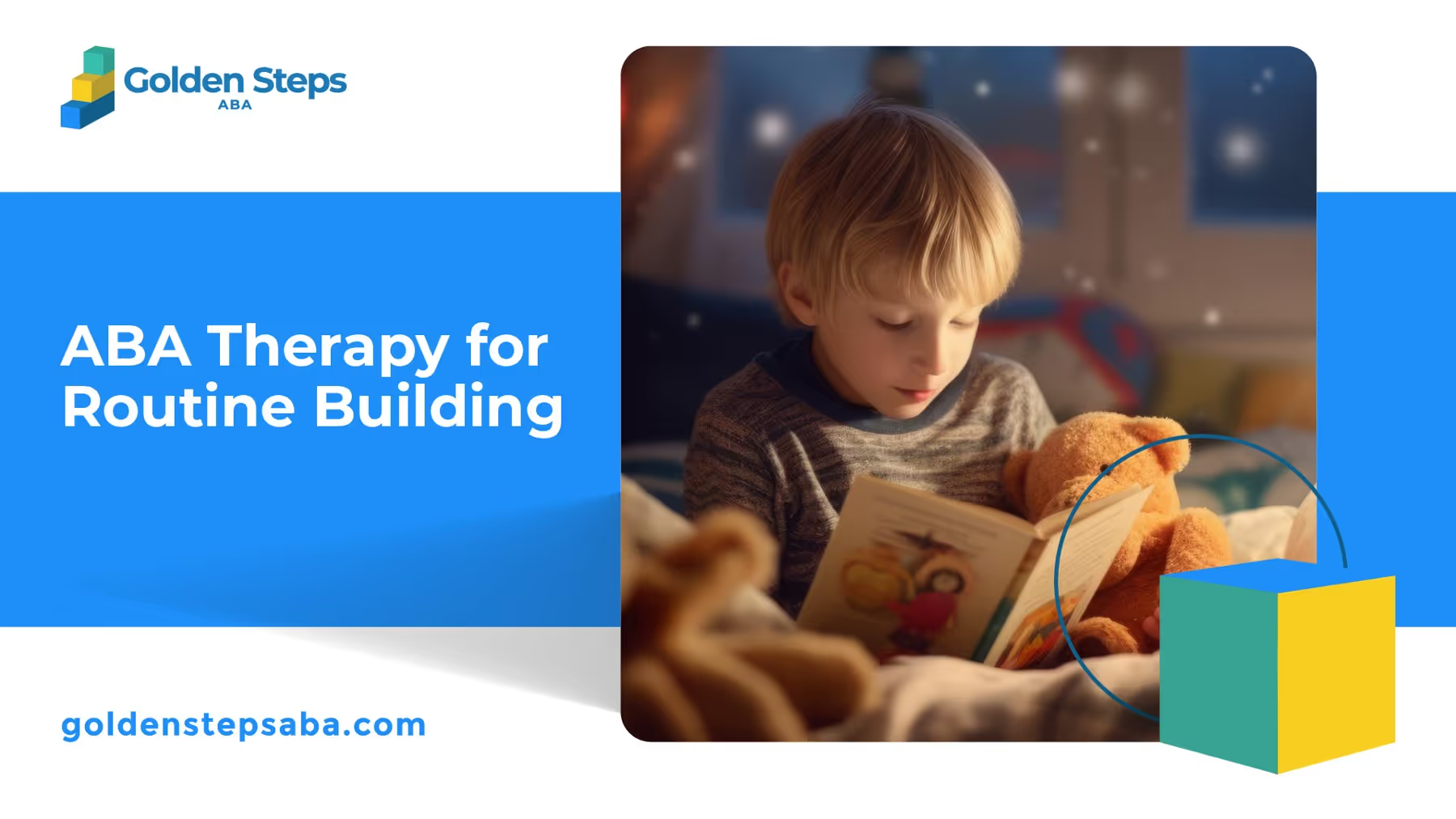ABA Therapy for Routine Building
Applied Behavior Analysis (ABA) therapy is an effective approach utilized to assist children with autism and related developmental disorders since the 1960s [1]. This evidence-based practice has gained widespread recognition for its ability to improve communication, social skills, and adaptive behaviors in individuals on the autism spectrum. One of the primary goals of ABA is to foster the development of structured routines that can significantly benefit the daily lives of individuals with autism.
ABA therapy employs a systematic approach to understanding and modifying behavior, focusing on positive reinforcement to encourage desired actions and responses. By breaking down complex skills into smaller, manageable steps, ABA practitioners can help individuals with autism learn and master new abilities at their own pace. This methodical approach is particularly useful when it comes to establishing and maintaining routines, which are crucial for many individuals with autism who thrive on predictability and structure.
Understanding how ABA can be applied to routine building is essential for parents and caregivers seeking to create a supportive environment for their loved ones. By implementing ABA techniques, families can develop consistent and effective routines that promote independence, reduce anxiety, and enhance overall quality of life for individuals with autism. These routines can encompass various aspects of daily living, including personal care, academic tasks, social interactions, and leisure activities.

The Role of ABA in Establishing Routines
A BCBA is essential in designing ABA programs tailored to each individual's unique skills, needs, interests, and family circumstances. By working closely with families, BCBAs can identify specific routines that may be beneficial, such as morning routines, mealtimes, or homework sessions.
Here's a breakdown of different routine types, their goals, and strategies used:
- Morning Routinesome text
- Goal: Increase independence in daily tasks
- Strategies: Visual schedules, token systems
- Mealtime Routinesome text
- Goal: Improve eating habits and social interaction
- Strategies: Social stories, modeling appropriate behaviors
- Homework Routinesome text
- Goal: Enhance focus and completion of tasks
- Strategies: Reinforcement for task completion

Benefits of Structured Routines
Structured routines can lead to various positive outcomes for children with autism, including:
Incorporating Data in ABA Therapy
Tracking progress is key in any ABA program. Without accurate and consistent data collection, it's challenging to determine if interventions are truly effective. Tools like Catalyst, a data collection software, assist providers in documenting behaviors and analyzing data for effective interventions [4]. This software streamlines the process, allowing therapists to focus more on the client and less on paperwork.
Analysts can use this information to adjust strategies as needed and ensure routines are effectively promoting desired behaviors and skills. By examining trends in the data, they can identify which interventions are working well and which may need modification. This data-driven approach allows for personalized treatment plans that evolve with the client's progress.
Moreover, these tracking tools enable better communication between therapists, parents, and other caregivers. By sharing real-time data and progress reports, everyone involved in the child's care can stay informed and aligned on treatment goals. This collaborative approach often leads to more consistent implementation of strategies across different settings, further enhancing the effectiveness of the ABA program.

Addressing Implementation Challenges
Consult a Board Certified Behavior Analyst (BCBA) to connect research with real-world Applied Behavior Analysis (ABA) practices. These professionals have extensive training and experience in developing and implementing behavior intervention plans tailored to each child's unique needs. BCBAs can provide valuable insights into evidence-based strategies and help translate complex research findings into practical, actionable steps.
Include parents and caregivers in implementing strategies and providing feedback to ensure routines effectively meet the child's needs. Their involvement is crucial as they spend the most time with the child and can offer invaluable observations about the child's behavior in various settings. Encourage open communication between the BCBA, parents, and other caregivers to create a cohesive support system.
Regular check-ins and progress reviews are essential to track the effectiveness of interventions and make necessary adjustments. This collaborative approach ensures that strategies are consistently applied across different environments, maximizing the child's potential for success and promoting generalization of skills.
Remember that every child is unique, and what works for one may not work for another. Be prepared to adapt and modify strategies as needed, always keeping the child's best interests at the forefront of decision-making.
Conclusion
ABA therapy for routine building is a powerful tool for promoting positive behavior changes and skill development in children with autism. This evidence-based approach focuses on breaking down complex tasks into smaller, manageable steps, making it easier for children to learn and adapt to new routines. By implementing consistent reinforcement strategies and gradually increasing the complexity of tasks, ABA therapy helps children develop essential life skills and improve their overall functioning.
By collaborating with trained professionals and utilizing structured approaches, families can create a nurturing environment that supports growth and learning. ABA therapists work closely with parents and caregivers to develop individualized treatment plans that address each child's unique needs and goals. This collaborative effort ensures that the strategies learned during therapy sessions can be effectively implemented at home, school, and in other settings.
Routine building through ABA therapy can have far-reaching benefits, including improved independence, reduced anxiety, and enhanced social skills. As children become more comfortable with established routines, they often experience increased confidence and a greater sense of control over their environment. This can lead to improved behavior, better communication, and more positive interactions with family members and peers.
For further insights into ABA applications, explore topics such as ABA therapy and peer interactionABA therapy for tantrums and meltdowns or . These resources can provide valuable information on how ABA techniques can be applied to address specific challenges and promote overall well-being in children with autism.

